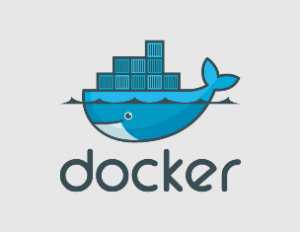Containerization: Leverage Docker, DevOps to Do More

Progress platforms leverage Docker and DevOps to speed time to market for app developers.
Even innovators can get stuck in a rut. I’m thinking of the people I meet who tell me about how much pressure they’re under to develop more and develop faster, and how difficult that is. However, I often discover that these folks are not taking advantage of some powerful ways to stretch their time and talent. I have in mind both Docker, the containerization technology, and DevOps, the radical simplification principle for organizing and managing development challenges.
Docker Containerization for Always Ready Apps
Docker is a major productivity upgrade because it places applications in containers that work on a standard framework, which ensures they will work wherever they are run (with the addition of Kitematic, that now includes Mac). I like to compare it to the familiar Universal Service Bus (USB) because it offers a similar kind of plug-and-play capability for developers. Containerization always had the potential to do this; Docker has made it truly successful.
 At Progress, we use Docker with Progress® Pacific® PaaS and with our Modulus™ platform, where portability is central to our value proposition. With Docker, Pacific and Modulus apps will run the same way wherever they are hosted—whether that’s on-premise, in a public cloud or spanning both as a part of a hybrid cloud deployment. That’s a really powerful capability!
At Progress, we use Docker with Progress® Pacific® PaaS and with our Modulus™ platform, where portability is central to our value proposition. With Docker, Pacific and Modulus apps will run the same way wherever they are hosted—whether that’s on-premise, in a public cloud or spanning both as a part of a hybrid cloud deployment. That’s a really powerful capability!
How to Leverage or Even Outsource DevOps
DevOps tackles the people and process challenges inherent in software development. By more closely integrating operational requirements with development best practices and the discipline of quality assurance, DevOps aims to streamline the whole and yield better results.
That’s a big claim, but one that is being demonstrated in practice. DevOps is increasingly important because:
- Agile methodologies require enhanced efficiency
- Traditional development cycles are being pushed aside by demands from stakeholders for faster responses
- The existence of more flexible deployment and testing options that take advantage of the cloud
Progress has a take on this, too. We make it possible for smaller organizations to “outsource” DevOps to Modulus as a managed service offering. Similarly, larger organizations can leverage Modulus to optimize their multi-language support by providing a platform to improve operational efficiencies.
That’s another “best of both worlds” situation that can really make a difference in an application development environment. Together DevOps and Docker can change perceptions about what is possible.
Leverage Containerization Now
Progress helps you build, integrate and run beautiful applications regardless of device or cloud. Evaluate one of our options free:
- Pacific is a high productivity, cloud based application development platform for delivering data-driven apps. Try Pacific now.
- Modulus is a premier Node.js hosting platform that provides a complete technology stack for application developers. Try Modulus now.

